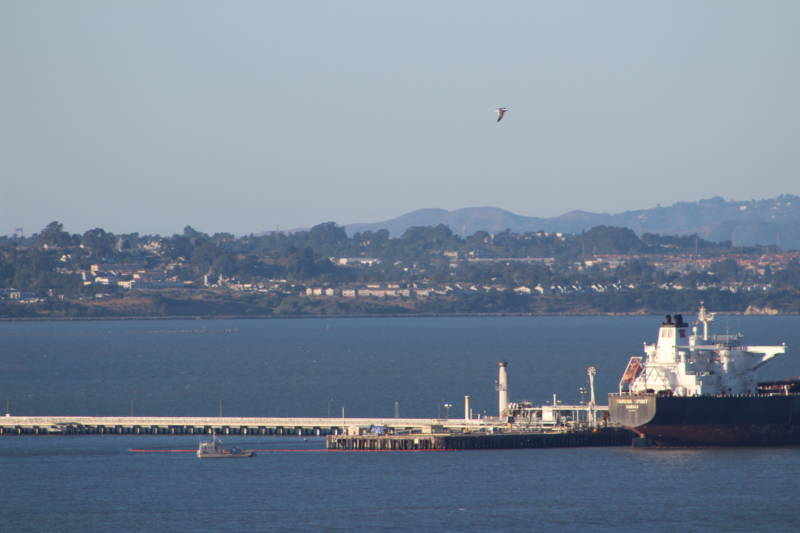Some residents of Vallejo have expressed alarm about the move, coming just 10 months after an oil spill at the marine terminal that is believed to have been the source of noxious fumes that sickened dozens of people.
Local air regulators are holding a public meeting in Vallejo Thursday night to address their concerns.
"We have definitely heard from the community in Vallejo," Tom Flannigan, a Bay Area Air Quality Management District spokesman, said in an interview. "Because Vallejo was impacted recently, there's just a lot of concern. That's why we decided to have a meeting there."
Vallejo city officials also expressed concern.
Joanna Altman, assistant city manager, said while the city does not have an official position on the refinery's proposal, it's still waiting for answers about the September 2016 incident from Phillips 66.
"Given the delay in their response and leaving our residents without answers, it is likely that we would be very concerned about any expansion absent adequate testing equipment, an early warning system and other appropriate procedures in place," Altman said in an email, adding that the issue could be brought before the Vallejo City Council.
Last month the regional air district issued notices of violation to Phillips 66 and to the operator of the oil tanker, the Yamuna Spirit, in connection with the spill.
Both companies have disputed findings from the Coast Guard that blame the refinery and the ship for September's spill.
The refinery's move toward an increase in shipping crude to its Rodeo facility and away from pipeline transfers comes after officials in San Luis Obispo County rejected the company's proposal to transport more oil by train to its refinery there.
To the Baykeeper's Choksi-Chugh, more oil by ship, pipeline and rail is not the answer.
"We've got an urgent need to move towards more of a clean energy future, and these refineries keep putting proposal after proposal to increase and expand their refining capacity," Choksi-Chugh said. "It's moving us in the wrong direction."
She said she believes the added ships will be bringing heavy tar sands oil from Canada -- a material she and other environmentalists say poses an added level of danger to local waters. Past spills of tar sands crude, like one into Michigan's Kalamazoo River in 2010, have proved extremely difficult to clean up.
Paul Adler, a Phillips 66 spokesman, confirmed in an email that the oil that would be brought by extra ships to the refinery would be different from the crude transported by pipeline from Central California. He declined to comment further on the proposal, adding that he would attend Thursday's air district public scoping meeting in Vallejo where residents could ask questions about the project.
That meeting is one step in what's expected to be a long process before the company gets approval for more tankers. The public comment period for the project's scoping ends on Aug. 28. Air district officials plan to work on its environmental impact report over the next year, seeking input from the public and 40 government agencies. The district's board of directors would then vote on the issue.
